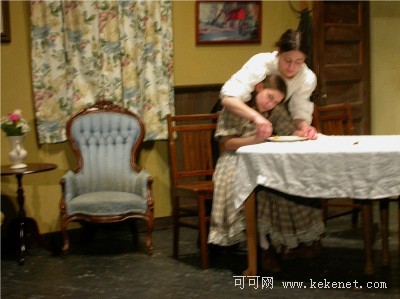
"How do you account for your remarkable accomplishment in life?" Queen Victoria of England asked Helen Keller.
"How do you explain the fact that even though you were both blind and deaf, you were able to accomplish so much?"
英國維多利女王曾問海倫•凱勒:“ 你一生中獲得如此卓越成就的原因是什么?你又聾又盲,你是如何取得如此巨大的成就的?”
Ms. Keller's answer is a tribute to her dedicated teacher. "If it had not been for Anne Sullivan, the name of Helen Keller would have remained unknown."
凱勒女士將這一切歸功于她那賦予奉獻(xiàn)精神的老師。“如果沒有安妮•沙利文, 海倫凱勒的名字也許永遠(yuǎn)不會為人所知。”
According to speaker Zig Ziglar, "Little Annie" Sullivan, as she was called when she was young, was no stranger to hardship. She was almost sightless herself (due to a childhood fever) and was, at one time, diagnosed as hopelessly "insane" by her by caregivers. She was locked in the basement of a mental institution outside of Boston. On occasion, Little Annie would violently attack anyone who came near. Most of the time she generally ignored everyone in her presence.
據(jù)金克•金克拉說,小安妮——沙利文幼時的名字——可是沒少經(jīng)歷苦難。她自己因?yàn)閮簳r發(fā)高燒而幾乎雙目失明,且一度被看護(hù)者們診斷為精神失常,無法醫(yī)治。她被所在波士頓城外一個精神醫(yī)院的地下室里。有時,小安妮惠狂暴的攻擊每一個靠近她的人,但多數(shù)時候她則對身邊的每一個人不理不睬。
An elderly nurse believed there was hope, however, and she made it her mission to show love to the child. Every day she visited Little Annie. For the most part, the child did not acknowledge the nurse's presence, but she still continued to visit. The kindly woman left cookies for her and spoke words of love and encouragement. She believed Little Annie could recover, if only she were shown love.
盡管如此,一位上了年紀(jì)的護(hù)士認(rèn)為仍有希望。她把愛護(hù)這個孩子作為自己的職責(zé),每天都去看小安妮。大多數(shù)時候,這孩子都意識不到護(hù)士的存在,但她仍舊不斷地去看她。這位好心的女士給孩子留下餅干,對她說鼓勵和慈愛的話語。她堅(jiān)信,只要有愛,小安妮就一定能恢復(fù)正常。











